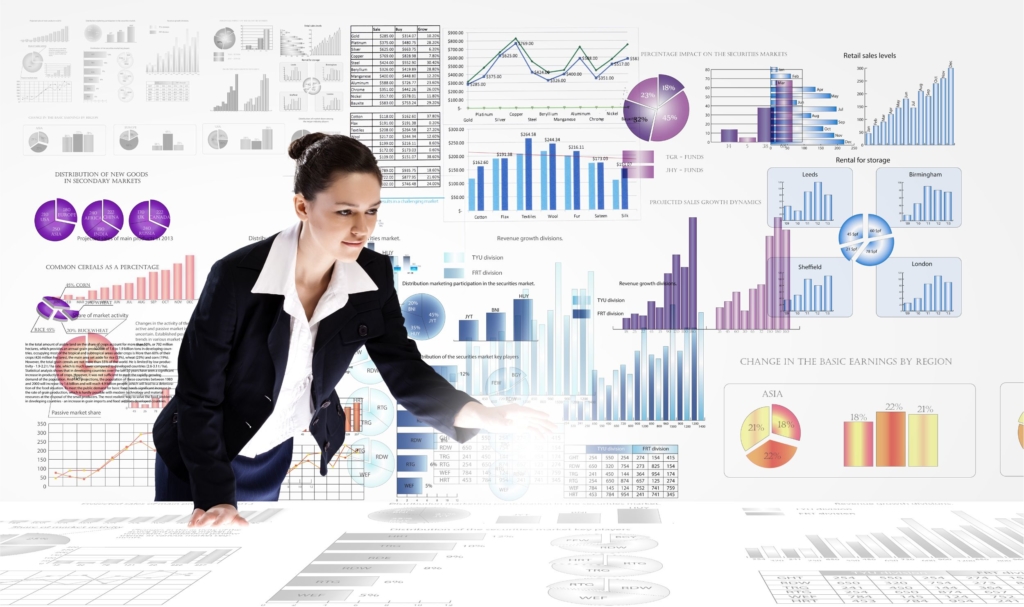Perspective Analytics™ and Marketing Data Analysis
Updated 6/8/2023 / Lean Marketing / Pv

Data analysis in Perspective Analytics differs from other types of marketing data analysis in several ways:
Focus on value-adds
Perspective Analytics places a strong emphasis on delivering value to the visitor or customer. Traditional marketing data analysis often focuses on metrics such as conversion rates, click-through rates, or customer acquisition costs. In contrast, Perspective Analytics goes beyond these metrics and seeks to understand the needs, preferences, and pain points of the audience. It aims to tailor marketing efforts to address those effectively, ultimately providing a better experience and value-adds for customers.
Iterative testing and learning
Perspective Analytics relies on iterative testing and learning to identify effective strategies and tactics. It involves a continuous process of experimentation, quickly recognizing what works and discarding what doesn’t. This iterative approach allows marketers to optimize their efforts and allocate resources more efficiently based on data-driven insights. Traditional marketing data analysis may focus more on historical analysis or aggregated data, whereas Perspective Analytics actively engages in ongoing experimentation and adaptation.
De-risking assumptions
Perspective Analytics aims to de-risk assumptions across the sales funnel by actively testing and validating them. Assumptions are inherent in marketing strategies, but they also come with risks. Perspective Analytics encourages marketers to challenge and validate assumptions at each stage of the sales funnel through data-driven analysis and experimentation. By reducing reliance on guesswork and validating assumptions, marketers can make more informed decisions and minimize risks associated with their strategies.
Adaptive responses and pivoting
Perspective Analytics emphasizes creating adaptive responses to external parameters such as market trends, competitor actions, or shifts in customer behavior. It encourages marketers to pivot their strategies based on these parameters, proactively adjusting their approach to stay ahead of the curve. This adaptability is crucial in a rapidly changing business environment. Traditional marketing data analysis may focus more on static strategies, while Perspective Analytics embraces flexibility and agility in response to dynamic market conditions.
Systemic creativity and innovation
Perspective Analytics recognizes the importance of fostering a culture of systemic creativity and innovation within marketing teams. It encourages diverse perspectives, open communication, and an environment that values experimentation. This approach unlocks new ideas and approaches that drive growth and differentiation. Traditional marketing data analysis may not explicitly emphasize this aspect of creativity and innovation.
Perspective Analytics and Marketing Data Analysis
Updated 6/8/2023 - Perspective Analytics data analysis focuses on value-adds, iterative testing, de-risking assumptions, adaptive responses, and a culture of systemic creativity.
Marketing Frameworks for Startups – Discussion
Updated 1/12/2023 - We’re talking about marketing frameworks for start-ups which requires a flexible and growth minded marketing framework in order to discover and then accelerate growth.
The Benefits of a Lean Marketing Framework
Updated: 2/25/2023 - Modern lean marketing frameworks focus on ideation, iteration, testing, and adaptive measurement protocols to de-risk assumptions quickly and cost and resource effectively.
5 Benefits of Perspective Analytics in a Lean Marketing System™
Updated 12/3/2022 - Perspective analytics is a key element in a lean marketing system, targeting actionable insights v. data monitoring and more linear analyses from the data.
Marketing for Startups – 2 Buckets that Matter / RWO Marketing Group
Updated 8/3/2022 - Lead-gen analytics should be considered worthless unless you have a perspective analytics mindset around what your looking at, how it materialized (assumptions through end point), and where it can take you.
A Perspective on Lead Gen Analytics
Updated 9/6/2022 - Lead-gen analytics should be considered worthless unless you have a perspective analytics mindset around what your looking at, how it materialized (assumptions through end point), and where it can take you.
